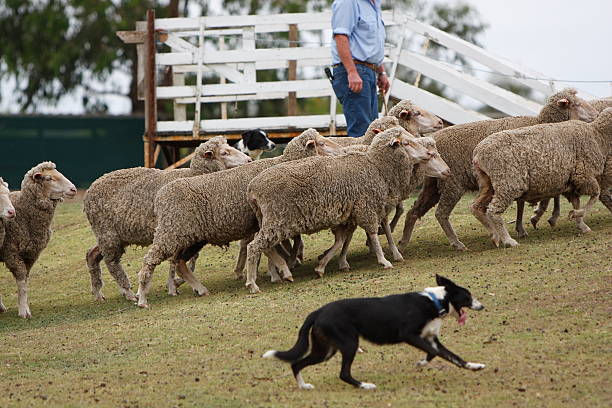What is Q Fever?
Q fever, once known as “query fever”, is the most commonly reported zoonotic disease in Australia. It is a flu-like disease caused by the bacteria, Coxiella burnetii. It is carried by cattle, sheep and goats, as well as feral animals such as bandicoots and rodents. While it rarely causes clinical disease in animals, those working across the livestock value chain are at risk, including farmers, farm workers, abattoir workers and agents. It can even be transmitted to people who do not have contact with animals. Q fever is a notifiable disease in Victoria.
Why is it important?
Q fever costs the Australian livestock industry millions of dollars through lost employee productivity.
How is it spread?
The bacterium is shed in the milk, faeces and urine of infected animals. The most potent source of the disease is in the foetus, placenta and birth fluids, with one gram of placental tissue able to contain one billion bacteria.
Q fever can persist in dry conditions, surviving in dust particles and dry faeces for months. This means the dust particles could be transported to other locations unknowingly and infect humans.
Humans can become infected with Q fever by:
- Ingestion or inhalation of contaminated dust particles
- Handling infected tissues and fluids especially after birth
- Contact with infected animal waste products
- Contact with soiled straw, wool or hair
- Consuming unpasteurised milk
Who is at risk?
People who work with livestock have the greatest risk of contracting the disease.
Clinical Signs
Clinical signs are rarely observed in livestock. In some cases, abortions in sheep and goats occur as a result of Q fever.
Humans infected with the disease generally exhibit flu-like symptoms such as:
- Fever, which can last for extended periods of time
- Chills, usually lasting three to four days
- Severe headaches, muscle and joint pain
- Nausea, vomiting and diarrhoea
- Overwhelming fatigue
- Weight loss
- Endocarditis, inflammation of the heart valve, as a result of acute infection. This usually occurs in people with a pre-existing heart condition.
Most Q fever infection is self-limiting and lasts about 2-6 weeks however, in some cases the disease can be quite severe, requiring hospitalisation or lead to chronic disease where symptoms persist for years. This may affect an individual’s ability to work or undertake everyday tasks.
Treatment
Treatment and control strategies for livestock are rarely required, except in some goat herds.
Q fever in humans is diagnosed by a blood test and treatment with antibiotics is most effective when started early. Severe Q fever symptoms such as endocarditis, will require ongoing medical care.
Seek medical advice if you have flu-like symptoms and may have been in contact with infected stock. Let the medical attendant know that you have been in contact with potentially infected livestock as the disease is often misdiagnosed due to its similarities with other illnesses.
Prevention
Hygienic practices should always be part of on-farm safety precautions, particularly so if you work with animals.
- Thoroughly wash hands and arms after handling animals, carcasses, birth material and contaminated feedstuff
- Use protection against inhalation of infective dust particles and covering any cuts or abrasions to prevent infectious fluids entering the body
- Remove protective and/or other clothing that may carry infectious material before returning home
- Burn or bury infected animal birth material
- Boil milk before consumption
- Get vaccinated against Q fever
- Keep livestock facilities well away from domestic areas
Can You Develop Immunity?
Immunity against Q fever can be achieved if you have:
- Received the Q fever vaccination
- Previously been infected with Q fever, as confirmed by a doctor
The Q fever vaccine is recommended for people working in the livestock industry. Before vaccination, you need to have a skin and blood test to determine if you have previously been infected with Q fever. If you have been infected with the disease, it is important you don’t get vaccinated.
To arrange for a Q fever vaccination, contact your doctor or the Australian Q Fever Register on 1300 733 837.
Further Resources
Click here to download the PDF version.
For further information, please contact the VFF Livestock Group on 1300 882 833 or by email [email protected]
Disclaimer: All care is taken in the preparation of the information and published materials produced by the Victorian Farmers Federation (VFF) including but not limited to errors, defects or omissions in the information provided. VFF does not make any representations or give any warranties about the accuracy, reliability, completeness, or suitability for any particular purpose in the preparation of the information and published materials. This publication is intended for general information purposes only and does not constitute financial, legal, investment, production, or marketing advice. To the maximum extent permitted by law, the VFF and all persons acting on behalf of the VFF in preparing documents, are excluded from all and any liability for any loss or damage of any kind arising in relation to this publication including any reliance on the information contained herein.
